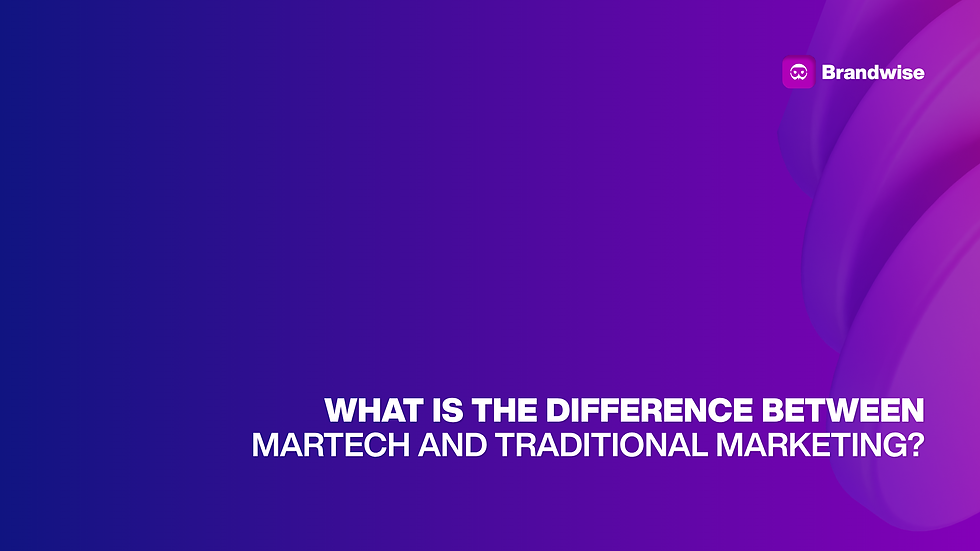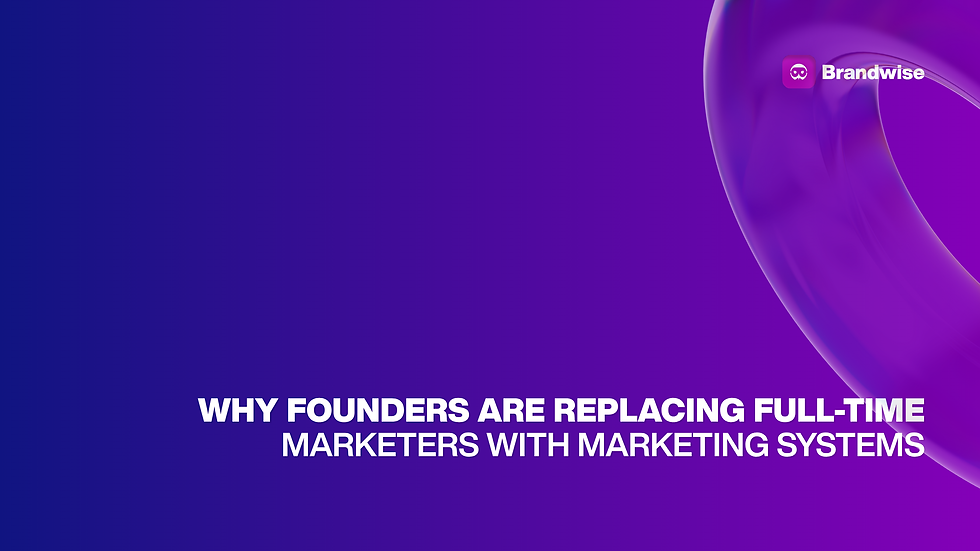10 Must-Have CRM Features For Your Business Needs
- Niko Leonidze

- Jul 1, 2025
- 5 min read

Let’s be real, choosing the right CRM isn’t just a software decision. It’s a growth decision.
Whether you're scaling your startup or optimizing a small team’s operations, a CRM should do more than hold contacts. It should actively help you close deals faster, automate what slows you down, and give you insights you can act on. But with so many platforms out there, it’s easy to get lost in the noise.
Here are the 10 CRM features you should absolutely prioritize—because they’re not nice-to-haves. They’re non-negotiables if you want your CRM to actually support your business, not weigh it down.
1. Contact Management That Actually Works
A CRM without proper contact management is just a glorified spreadsheet. You need one place to store everything: client names, communication history, lifecycle stage, buying triggers, objections, decision-makers—the whole picture.
That way, whether it’s sales, marketing, or customer support, your team always knows exactly who they’re talking to and what’s happened so far.
Better yet? Segmenting. You should be able to group contacts by behavior, industry, deal size, last interaction date—whatever matters to your business.
Think: fast access, filtered views, and context-rich profiles that let your team act like they’ve known the client for years.
2. Sales Pipeline Visualization
You need to see what’s moving, what’s stuck, and what needs attention—in real time. A clean, visual pipeline gives your sales team clarity on where each lead is in the journey, what’s been done, and what’s coming next. No more guessing. No more hunting through emails.
Look for drag-and-drop deal stages, filters by rep or territory, and pipeline forecasting tools that give managers actual visibility.
If your CRM doesn’t help you see the full sales journey at a glance, it’s slowing you down.
3. Workflow & Task Automation
Manual follow-ups? Manual lead routing? No thanks.
Your CRM should let you build smart automations that fire based on real actions. A lead fills out a form? Assigned instantly. No response after 3 days? Follow-up email triggered. Deal marked as closed? An internal task was created for onboarding.
This is how you scale without burning out your team. Let the system handle the repetitive stuff while your team focuses on high-value conversations and closing revenue.
The goal: less admin, more action.
4. Marketing Automation That’s Connected to Sales
Your CRM should bridge the gap between marketing and sales, not make it wider.
When someone clicks an ad, downloads a guide, or opens an email, your sales team should know about it instantly. A good CRM makes that connection seamless, tracking lead behavior, triggering follow-ups, and surfacing the right message at the right time.
Look for built-in email campaigns, dynamic audience segmentation, lead scoring, and behavior-based triggers. It’s not about blasting out content—it’s about relevance.
One platform. One data flow. Marketing and sales, finally in sync.
5. Reports, Dashboards & Real-Time Analytics
If you can’t measure it, you can’t optimize it. Period.
Your CRM should show you what’s working and what’s not—across sales, marketing, and service—in real time. You shouldn’t need to wait on a weekly report or dig through spreadsheets to figure out where your leads are dropping off or which rep is outperforming.
Look for customizable dashboards that each team member can tailor to their role. You want clear views of pipeline velocity, win/loss ratios, conversion rates, and campaign ROI.
Data should drive your decisions, not guesswork. Your CRM should put that power directly in your hands.
6. AI-Powered Assistance (Not Just Buzzwords)
Let’s be honest—AI is everywhere. But if it’s not actually helping you close deals faster, it’s just hype.
Modern CRMs should be smart enough to score leads based on behavior, flag deals that are at risk, suggest optimal times to follow up, and even generate personalized email copy. This isn’t just about convenience—it’s about winning faster and more often.
And if it’s generative AI? Even better. It should use your real customer data (securely) to create content and action plans that make sense for your business.
If your CRM isn’t giving you strategic nudges or surfacing hidden opportunities, it’s not really helping you grow.
7. Mobile Access (Because Work Isn’t Always at a Desk)
Let’s be real—work happens everywhere. Whether you're traveling, in a client meeting, or simply away from your desk, you still need to close deals, log notes, and track activity.
A mobile CRM should give you full access to your data: contact info, pipeline updates, call logs, notes, and next steps—not just a limited-view version of your desktop app.
If your CRM works great on your laptop but crashes on your phone, that’s a red flag. Flexibility matters.
8. Omnichannel Support & Communication History
Customer communication happens on multiple platforms—email, phone, social DMs, chatbots, and even WhatsApp. Your CRM should be smart enough to pull all those touchpoints into one unified timeline.
That means anyone on your team—sales, support, or marketing—can open a contact’s record and instantly know what’s been said, what’s pending, and what matters most.
No repeated questions. No missed context. Just better conversations and faster resolutions.
9. Customization & Scalability
Your CRM needs to fit your business, not the other way around.
You should be able to customize fields, tailor deal stages, build workflows that reflect your sales process, and create dashboards that show each team only what they need. No bloated templates. No forcing your team into someone else’s structure.
Also, think long term. Can the CRM handle 3x more contacts, 10x more users, or new departments if your business grows fast?
Don’t box your future into a system built for where you were last year. Choose one that adapts as you do.
10. Bulletproof Security & Permissions
Customer data isn’t just valuable—it’s sensitive and protected by law. Your CRM should be built with security at the core, not treated as an afterthought.
Look for features like role-based access, data encryption, audit logs, and GDPR/CCPA compliance baked into the platform.
Whether you’re handling B2B contracts, financials, or just customer emails, your team should only see what they need, and your data should stay locked down.
Trust is everything. And your CRM needs to help you keep it.
Conclusion
A solid CRM isn’t just a tool—it’s your team’s operating system.
The right one will make your entire workflow smoother, your data cleaner, your follow-ups smarter, and your customers happier. The wrong one? It’ll slow you down, silo your teams, and create more manual work than it saves.
So don’t fall for shiny features or overhyped platforms. Go back to the essentials. Use this list to stay focused on what actually matters for your team, your workflows, and your growth.
Pick a CRM that grows with you, not one you’ll outgrow.
Discover Brandwise's Digital Marketing Solutions
At Brandwise, we specialize in providing comprehensive digital marketing solutions tailored to your business needs. Our services cover branding and identity creation, website development, social media management, content strategy, SEO, paid advertising, data analysis, and more.
Whether you're looking to build your online presence or optimize your marketing strategies, we have the expertise to help you succeed.
If you're ready to take the next step and make an informed decision for your next project, click the button to see our plans.
For more inspiration and to see our innovative projects, visit our showcase.



